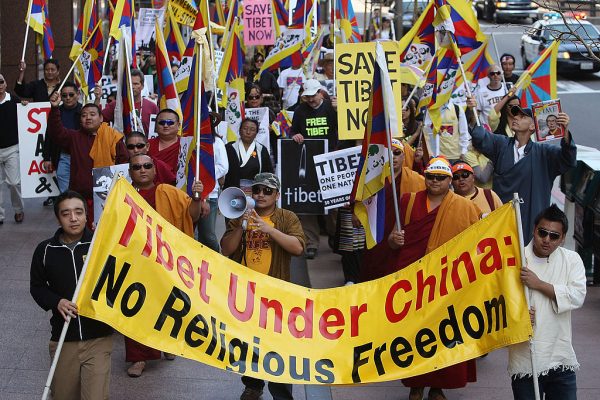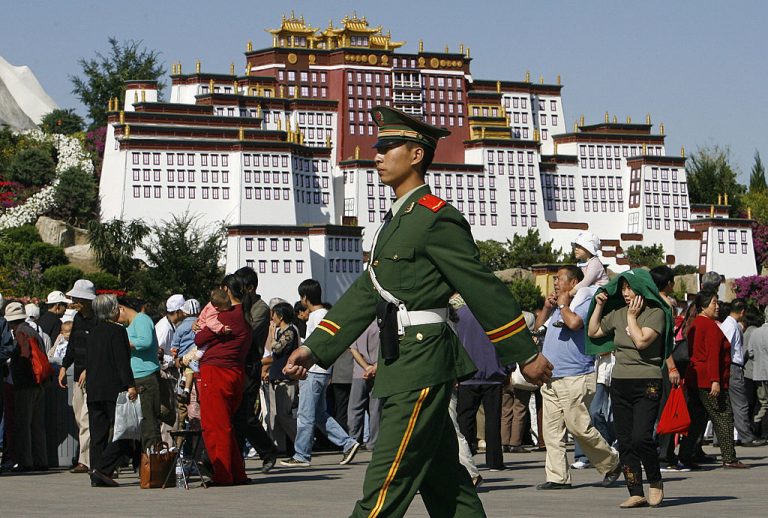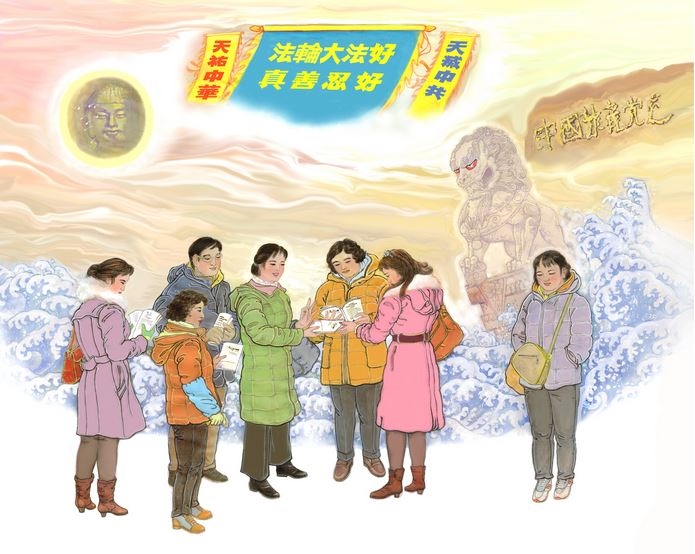In China’s southwestern province of Sichuan, the construction of the Gangtuo hydroelectric plant — a 25-dam system on the Drichu River — has ignited intense protests and led to the mass arrest of over a thousand Tibetan monks and villagers.
The protests, which originated in Derge (a county in the Garzê Tibetan Autonomous Prefecture), highlight new concerns regarding the preservation of Tibetan cultural heritage, and once again brings the Chinese Communist Party’s (CCP) human rights abuses into focus.
The core of the unrest lies in the potential submersion of ancient Tibetan monasteries and the displacement of approximately 100,000 people to accommodate the dam project. Historical sites such as the Wonto and Yinnan temples, which survived the Cultural Revolution and are home to significant 14th and 15th-century murals, are at risk. The urgency and desperation of the local population have been palpable — with protests escalating since Feb. 19, local media reports.
RELATED: Boarding Schools for Tibet’s Nearly 1 Million Children Erasing Native Language, Culture: NGO Report

Extreme force by Chinese police
Meanwhile, the response from Chinese authorities has been severe — with locals witnessing water cannons, pepper spray, and tasers being used against protesters. During the scuffle, several Tibetans also sustained injuries that required hospitalization, according to a report by Bitter Winter.
Success
You are now signed up for our newsletter
Success
Check your email to complete sign up
RELATED: Chinese Authorities Destroy Another Buddha Statue in Ethnic Tibetan Community
The report further noted that Chinese authorities enforced a network blockade in the region and forcibly seized mobile phones from Tibetan residents who were trying to document the protests. Despite these measures, a few blurred photographs of the protests still surfaced on social media platforms.
The mass arrests and use of force by Chinese police have drawn international attention, with the U.S. State Department expressing “deep concern” over the situation. Uzra Zeya, U.S. undersecretary of state for civilian security, democracy, and human rights, emphasized the need for China to “respect human rights & freedom of expression and include Tibetans in the development & implementation of water and land management policies,” in a post on X (formally known as Twitter).
“These centuries-old monasteries are home to hundreds of Tibetan Buddhist monks & contain irreplaceable cultural relics,” wrote Zeya, adding, “[The United States] stands with Tibetans in preserving their unique cultural, religious, and linguistic identity.”
Human rights under siege
The international community has also voiced outrage over the Chinese Communist Party’s (CCP) actions, with figures such as Benedict Rogers, the deputy chair of the UK Conservative Party Human Rights Commission, calling the repression “appalling and outrageous” and advocating for global awareness and action towards a #FreeTibet.
The situation has also rekindled discussions on the long-standing issue of Tibet’s autonomy and the Chinese government’s treatment of ethnic minorities. The Tibetan struggle for recognition and rights has been a prolonged one — with the Dalai Lama, Tibet’s spiritual leader, living in exile since 1959 following a failed uprising against Chinese rule.
But the international response, as highlighted by Sikyong Penpa Tsering, president of the Central Tibetan Administration, underscores a renewed global concern over China’s disregard for Tibetan rights and other ethnic minorities.
‘Unacceptable by any measure’
“The Chinese authorities’ disregard for the rights of Tibetans is unacceptable by any measure,” said Tsering, adding, “The punitive acts demonstrate China’s prioritization of its ideology and interests over human rights.”
“We call on the Chinese government to release all those detained and to respect the rights and aspirations of the Tibetan people. The world needs to hear the Tibetans’ voices and confront the truth of Chinese misrule in Tibet,” he added.
The string of protests and arrests have not only highlighted the immediate threat to Tibetan culture and heritage posed by the dam construction, but have also brought to light broader issues of human rights abuses, ethnic cleansing, and suppression of dissent within China.
Muslim Uyghurs, an ethnic group native to China’s western Xinjiang region, also face oppression at the hands of the authorities. According to multiple reports, more than one million Uyghurs are believed to be held in concentration and re-education camps under the guise of counter-terrorism and assimilation. These allegations bring to light severe human rights concerns — including forced labor, mass arbitrary detention, and sexual abuse.













